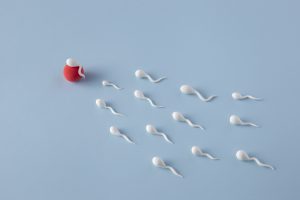Fertility preservation is becoming an increasingly important topic for many individuals and couples planning for their future families. With advancements in reproductive medicine, there are now several options available for those who want to ensure their ability to have biological children later in life. Whether due to medical reasons, career choices, or personal preferences, fertility preservation offers the opportunity to delay parenthood while retaining the possibility of having a biological child.
What is Fertility Preservation?

Fertility preservation refers to the process of saving or protecting eggs, sperm, or reproductive tissues to use in the future. Individuals who are at risk of losing their fertility due to medical treatments like chemotherapy, or who wish to delay childbearing for social or personal reasons, commonly seek it. Fertility preservation provides individuals with the peace of mind that they will have reproductive options when they are ready to start a family.
Why Do People Choose Fertility Preservation?
There are many reasons why individuals and couples choose to preserve their fertility. Some of the most common include:
Medical Reasons:
Certain medical conditions or treatments, such as cancer, autoimmune diseases, or surgeries involving the reproductive organs, can harm fertility. Chemotherapy and radiation, for example, can damage eggs and sperm, significantly reducing fertility. In these cases, individuals may choose to freeze their eggs, sperm, or embryos before starting treatment to safeguard their chances of having biological children later.
Age:
As women age, the quantity and quality of their eggs decline, especially after the age of 35. Men also experience a decline in sperm quality, although at a slower rate. Fertility preservation allows individuals to “pause the biological clock” by freezing eggs, sperm, or embryos at a younger age when fertility is at its peak. This ensures better chances of conception later in life.
Career and Lifestyle Choices:
Many people delay starting a family to focus on their careers, education, or other life goals. Fertility preservation provides flexibility, allowing individuals to have children when they are ready without worrying about the decline in fertility that comes with age.
Relationship Status:
Those who haven’t yet found a partner but want to keep their future fertility options open may opt for egg or sperm freezing. This provides a sense of security that they can still pursue parenthood later, regardless of when they find a partner.
Types of Fertility Preservation
There are several fertility preservation methods available, each catering to different needs and circumstances:

Egg Freezing (Oocyte Cryopreservation):
This is the process of freezing a woman’s eggs for future use. Doctors often recommend it to women who are concerned about age-related fertility decline or those who may lose their fertility due to medical treatments. A procedure called egg retrieval collects the eggs, which are then frozen and stored for later use. When the woman is ready to conceive, she can thaw the eggs, fertilize them with sperm, and implant them in the uterus via IVF (In Vitro Fertilization).
Sperm Freezing (Sperm Cryopreservation):
This is the most common form of fertility preservation for men. Sperm samples are collected, analyzed, and then frozen for future use. Men who are undergoing medical treatments that could harm their fertility or those who wish to delay fatherhood can benefit from sperm freezing.
Embryo Freezing:
This process involves fertilizing a woman’s eggs with sperm to create embryos, then freezing and storing them for future use. Couples who are ready to create embryos but wish to delay implantation for various reasons often choose embryo freezing. People commonly use this method alongside IVF treatments.
Ovarian Tissue Freezing:
This is a more experimental method where a portion of ovarian tissue is removed, frozen, and later transplanted back into the body. Doctors often use it for young cancer patients who cannot undergo egg retrieval due to the urgency of treatment. This method aims to restore natural fertility by reintroducing the ovarian tissue into the body after the treatment is completed.
Testicular Tissue Freezing:
Similar to ovarian tissue freezing, this is an option for boys who have not yet reached puberty and cannot produce sperm. A small sample of testicular tissue, which contains stem cells that can eventually produce sperm, is frozen for future use.
Benefits of Fertility Preservation
Fertility preservation offers numerous benefits for those who may be at risk of losing their fertility or who simply want more control over their reproductive timeline.

Greater Control Over Timing:
Fertility preservation allows individuals to plan their family on their terms, giving them the flexibility to pursue other life goals without sacrificing their ability to have biological children.
Peace of Mind:
For those undergoing medical treatments that could harm their fertility, fertility preservation provides reassurance that they have a backup plan in place. This can significantly reduce stress and anxiety during treatment.
Better Fertility Outcomes:
By freezing eggs or sperm at a younger age, individuals can improve their chances of conception when they are ready. Eggs and sperm collected earlier in life are typically healthier, increasing the success rates of future fertility treatments.
The Future of Fertility Preservation
As technology continues to advance, fertility preservation methods are becoming more efficient and accessible. New techniques, such as in vitro maturation (IVM) and improved cryopreservation methods, are providing even greater options for individuals looking to safeguard their fertility. Additionally, ongoing research in reproductive medicine may one day lead to breakthroughs that make fertility preservation an option for an even wider range of people.
Conclusion
Fertility preservation is an empowering option for individuals and couples who want to protect their reproductive futures. Whether due to medical necessity, personal choice, or lifestyle factors, the ability to freeze eggs, sperm, or embryos offers peace of mind and the possibility of parenthood on your terms. As reproductive medicine continues to evolve, fertility preservation will remain a valuable tool in helping people achieve their family goals whenever the time is right.